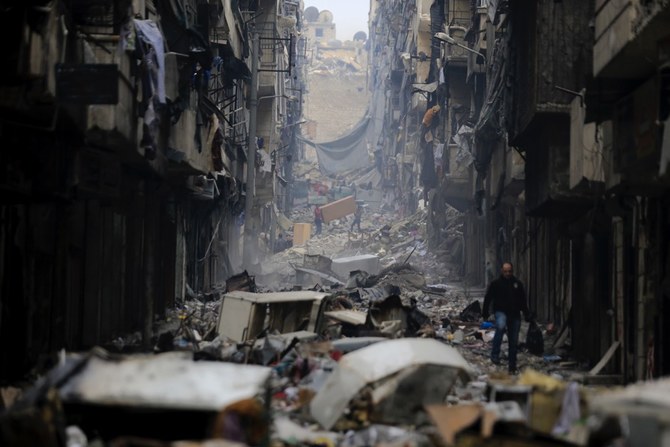RIYADH: The world continues to watch in despair the devastation caused by two earthquakes — measuring 7.8 and 7.5 on the Richter scale — that struck southeastern Turkiye and Syria early on Monday morning.
With the combined death toll surpassing 11,000 people by Wednesday, international aid agencies, humanitarian groups, military forces, government and private sector bodies have all been involved in providing help to the regions.
One area supplying some answers has been modern technology.
Drones, which are increasingly known for their role as weapons in modern warfare, are also useful tools during natural disasters such as earthquakes.
“Drones for sure play an important role in Turkiye as we speak,” Henk Jan Gerzee, chief product officer at the Digital Container Shipping Association, told Arab News during the LEAP conference in Riyadh on Wednesday.
Gerzee, who was on the panel looking at “Drones and Autonomous Vehicles,” added: “Firstly, drones can provide a clearer picture of what has happened.
“Drones are equipped with ultra-high-definition cameras. They can also be equipped with heat sensors and detection, and thus detect people.
“They can deliver medicine and smaller pieces of cargo. They can also detect dangerous gases, like methane.”
Dr. Jassim Haji, president of the Artificial Intelligence Society, who also took part in the discussion, underlined the role AI can play in such disasters, including forecasting extreme events, developing hazard maps, and assisting in situational awareness and decision support.
NASA technology can help in hearing the heartbeats of individuals trapped under debris and rubble. Its technology has frequently been used in the aftermath of earthquakes.
In 2015 the NASA FINDER tool was able to locate four men buried underneath mud, brick, wood and other debris following an earthquake in the Nepalese village of Chautara.
The same technology was also used in 2017 during an earthquake measuring 7.1 in Mexico City.
The UN utilized its emergency mapping satellite service, a live map that shows in real time the damage caused by an earthquake and its level of impact, within hours on Monday.
However, political conflict can have the last word when it comes to getting aid quickly to regions hit by natural disasters.
A resident in northeastern Syria, who spoke to Arab News on condition of anonymity, said: “The main issue is that aid has become politicized, so even if this tech is available, it is likely it won’t reach these areas.”
Roj Mousa, a Syrian journalist from Afrin, told Arab News: “All of our friends and relatives are under the rubble now in Afrin and Jindires.
“I haven’t had a moment to rest since the earthquake happened. I speak with my relatives all the time.
“There is no aid coming to these areas — no water, no food, no rescue. The cities are now further devastated.
“The people helping to pull out the rubble are civilians doing so with their bare hands.
“All the aid is being blocked by members of the Turkish-controlled Syrian militia.”
Mousa added that small cameras used by doctors to see inside the rubble were helpful, but getting such technology into occupied areas was difficult.














